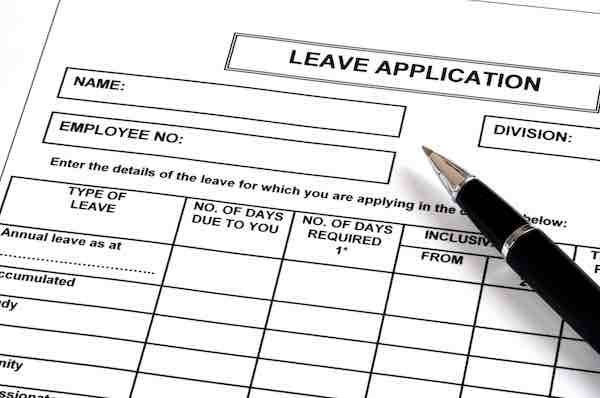Recently introduced legislation would give federal employees 12 weeks of paid leave due to illness or to care for a sick family member.
The Comprehensive Paid Leave for Federal Employees Act (H.R. 856) would essentially make leave currently offered to federal employees under the Family Medical Leave Act (FMLA) paid leave. Under the current law, most federal employees are allowed to take up to 12 weeks of unpaid FMLA leave for the following purposes:
- the birth of a son or daughter of the employee and the care of such son or daughter;
- the placement of a son or daughter with the employee for adoption or foster care;
- the care of spouse, son, daughter, or parent of the employee who has a serious health condition; or
- a serious health condition of the employee that makes the employee unable to perform the essential functions of his or her positions.
- any qualifying exigency arising out of the fact that the spouse, or a son, daughter, or parent of the employee is on covered active duty (or has been notified of an impending call or order to covered active duty) in the Armed Forces.
The bill that was just introduced by Congressman Don Beyer (D-VA) would guarantee 12 weeks of paid family leave for federal employees in the following cases:
- In order to care for the spouse, child, or parent of the employee, if such spouse, child, or parent has a serious health condition;
- Because of a serious health condition that makes the employee unable to perform the functions of the employee’s position; and
- Because of any qualifying exigency arising out of the fact that the spouse, child, or parent of the employee is on covered active duty (or has been notified of an impending call or order to covered active duty) in the Armed Forces.
Companion legislation was also introduced in the Senate (S. 274) by Senator Brian Schatz (D-HI).
Apparently emboldened by the recent passage of paid parental leave for federal employees that gives the federal workforce up to 12 weeks of paid leave for the birth or adoption of a child, the lawmakers are pushing for more. Beyer said in a statement:
As the representative of the district with the largest number of federal employees in the country, I am conscious of the tremendous amount of good it would do for our region to provide comprehensive paid family and medical leave to the federal workforce. But every district has federal workers, and the benefits of this legislation would be felt across the country. We were able to achieve a major expansion of paid parental leave for federal workers, but we still have more to do. This basic benefit for workers is even more crucial in the age of Covid, but the United States still lags the rest of the world in securing guaranteed paid leave for its full workforce. As we advance this bill, which I am very proud to note is bipartisan, I will continue to work with members of both parties in pursuit of guaranteed paid leave for all American workers.
The White House is also currently pushing to expand leave options for federal employees. President Biden said in a recent memo that he wants to expand leave without pay for federal employees to bond with a newborn child, care for a sick family member, for federal employees to care for themselves when seriously ill, or to help manage family affairs when a family member is called to active duty among other reasons.
Federal employees were also recently given two weeks of paid parental bereavement leave as part of the 2022 National Defense Authorization Act for bereavement in connection with the death of a child.
Between 12 weeks of paid parental leave, two weeks of paid parental bereavement leave, and 12 weeks of paid family and medical leave (if this legislation were to become law), that would seem to pretty well cover the full spectrum of paid leave options in the family realm for the federal workforce.
How Would the Additional Paid Leave Work?
It’s not clear exactly at this point how the additional 12 weeks of paid leave would work. If the bill were to become law, the Office of Personnel Management would likely issue guidelines outlining exactly how the benefit would work and how federal employees can qualify and utilize it.
However, regarding FMLA leave, OPM’s website states that “…most Federal employees are entitled to a total of up to 12 workweeks of unpaid leave during any 12-month period…” for any of the reasons allowed to take FMLA leave. Presumably, that is how this benefit would work, so federal employees could potentially therefore have 12 weeks of paid leave per year if they met the qualifying conditions during a given year, i.e. the birth of a child one year, an illness another year, etc.
Other Leave Options Available to Federal Employees
In addition to all of the aforementioned leave options, these are some others currently available to federal employees:
- Up to 3 workdays of funeral leave to make arrangements for or to attend the funeral of an immediate relative who died as a result of wounds, disease, or injury incurred while serving as a member of the Armed Forces in a combat zone
- Up to four hours of leave to get the COVID vaccine
- Up to 1 day of annual leave per pay period depending on their length of service
- Up to 4 hours of sick leave per pay period
- 11 paid holidays in a typical year
The OPM website has more information on leave for federal employees.




